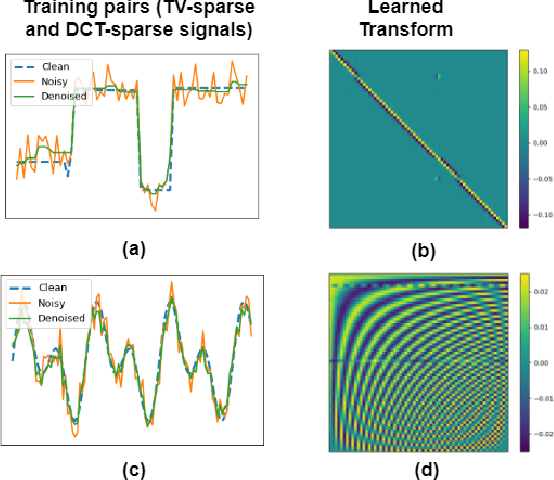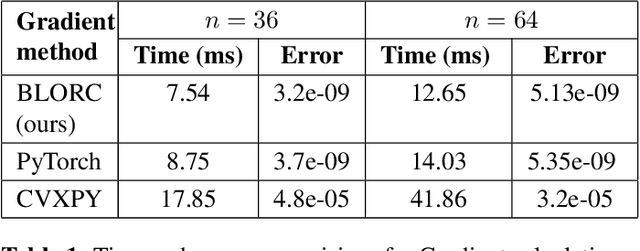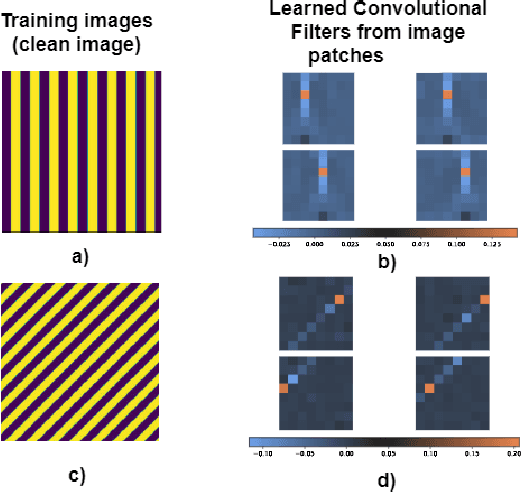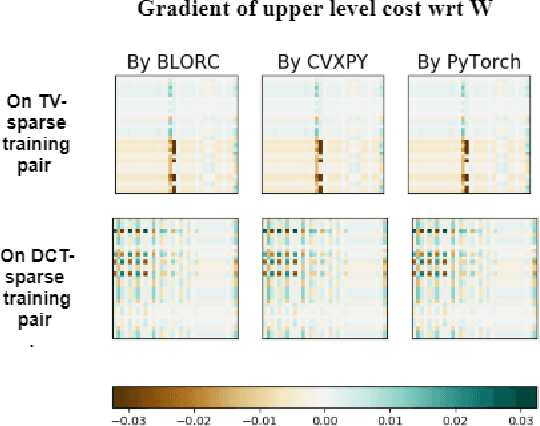Bilevel learning of l1-regularizers with closed-form gradients(BLORC)
Paper and Code
Nov 21, 2021



We present a method for supervised learning of sparsity-promoting regularizers, a key ingredient in many modern signal reconstruction problems. The parameters of the regularizer are learned to minimize the mean squared error of reconstruction on a training set of ground truth signal and measurement pairs. Training involves solving a challenging bilevel optimization problem with a nonsmooth lower-level objective. We derive an expression for the gradient of the training loss using the implicit closed-form solution of the lower-level variational problem given by its dual problem, and provide an accompanying gradient descent algorithm (dubbed BLORC) to minimize the loss. Our experiments on simple natural images and for denoising 1D signals show that the proposed method can learn meaningful operators and the analytical gradients calculated are faster than standard automatic differentiation methods. While the approach we present is applied to denoising, we believe that it can be adapted to a wide-variety of inverse problems with linear measurement models, thus giving it applicability in a wide range of scenarios.
 Add to Chrome
Add to Chrome Add to Firefox
Add to Firefox Add to Edge
Add to Edge